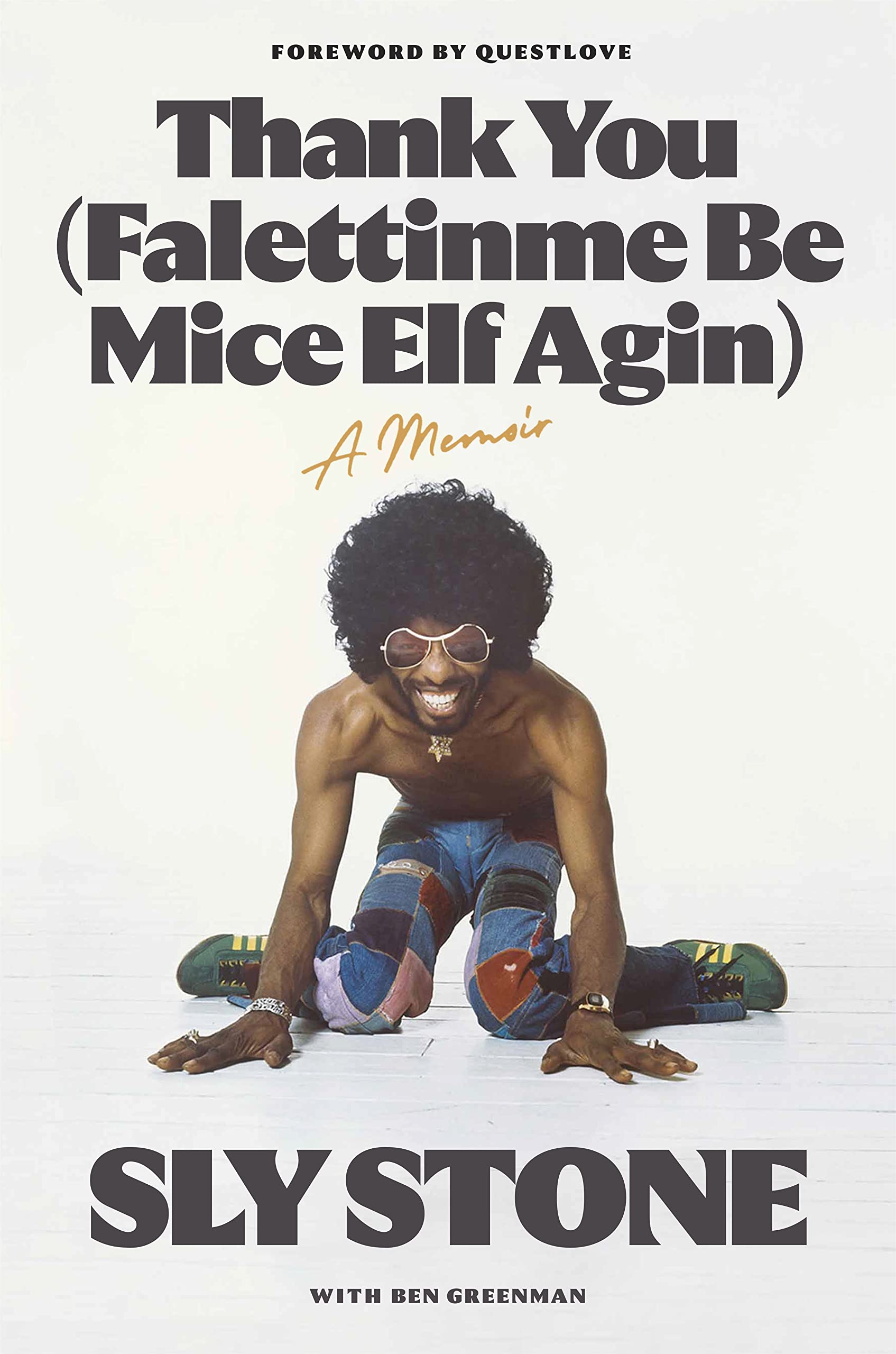Book Summary
In Thank You (Falettinme Be Mice Elf Agin), funk pioneer Sly Stone delivers a whirlwind memoir tracing his journey from church choirs in Vallejo to Woodstock glory and beyond. The book opens with Stone’s recent sobriety after decades of addiction, then loops back through his groundbreaking work with Sly & the Family Stone—the first major racially integrated, gender-mixed rock band. Vivid scenes like their electrifying 1969 Woodstock performance contrast sharply with later chapters detailing cocaine binges, missed concerts, and a Bel Air mansion overrun by guns and groupies.
Stone’s narrative voice mirrors his lyrics—playful, rhythmic, and occasionally disjointed. While he glosses over childhood details, the musical passages shine, particularly his breakdown of how hits like “Everyday People” and “Family Affair” were crafted. The memoir loses momentum when chronicling his post-1970s decline, but retains authenticity through unflinching accounts of jail stints, failed comebacks, and the tragic mauling of his son by his pet attack dog.
Key Themes
Musical Innovation vs. Personal Destruction: Stone’s genius for blending funk, rock, and soul parallels his self-sabotage through drugs and erratic behavior. He acknowledges this duality: “I offered light through music but chose darkness in private.” The memoir underscores how his boundary-pushing sound influenced everyone from Prince to hip-hop, even as his personal life spiraled.
Race and Representation: As a Black artist leading a mixed-race band during the Civil Rights era, Stone navigated complex expectations. His matter-of-fact recollections of segregation contrast with his refusal to be pigeonholed politically—a stance that drew criticism when he clowned alongside Muhammad Ali’s activism on The Mike Douglas Show.
What Makes It Unique
Unfiltered Voice: Unlike sanitized celebrity memoirs, Stone’s prose retains his lyrical eccentricities—punctuated by sudden rhymes and jarring transitions that mirror his fractured psyche. Co-writer Ben Greenman preserves this authenticity, even when it undermines narrative cohesion, like Stone’s digressive rants about old TV appearances.
Cautionary Tale Structure: The memoir’s circular framing—beginning and ending with Stone’s hospitalizations—heightens its impact as a redemption story. Recent photos with family provide poignant contrast to earlier excesses, though some critics note his avoidance of deeper remorse.
Reader Reactions
Reviews praise Stone’s unapologetic honesty but diverge on execution. Fans celebrate passages like his Woodstock recollections, with many noting how reading about the performance made them immediately play the album. Others critique the disjointed later chapters as hazy rants about unfair managers.
Notably, many reviewers applaud the memoir’s rare glimpse into a reclusive genius despite its flaws. Several highlight Stone’s dark humor, like his explanation for missed concerts: “I was suffering from impetuous youthfulness.”
About the Author
Born Sylvester Stewart in 1943, Sly Stone revolutionized music as leader of Sly & the Family Stone, blending funk, rock, and social commentary. His influence spans genres—George Clinton, Miles Davis, and 90s hip-hop artists all cite him as pivotal. After decades of addiction and homelessness, Stone sobered up during the pandemic to write this memoir.
This book marks his first major public project since 1982. As Questlove notes in the foreword: “Sly has lived a hundred lives, and they’re all here”—from radio DJ to recluse to unlikely octogenarian author.
Memorable Quotes
“Music didn’t have a color. All I could see was notes, styles, and ideas. I tried to learn from it all.”
“It wasn’t that I didn’t like the drugs. If it hadn’t been a choice between them and life, I might still be doing them. But it was and I’m not.”
